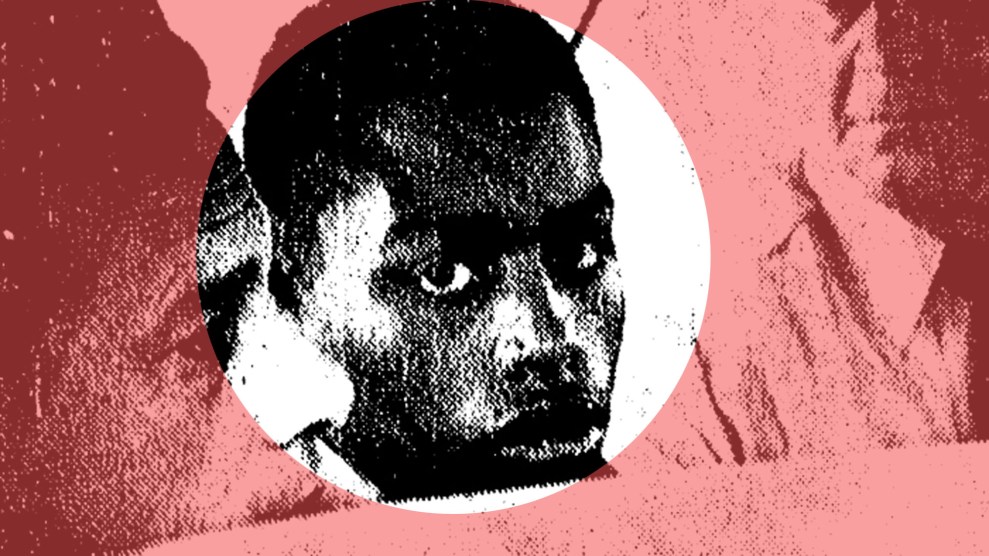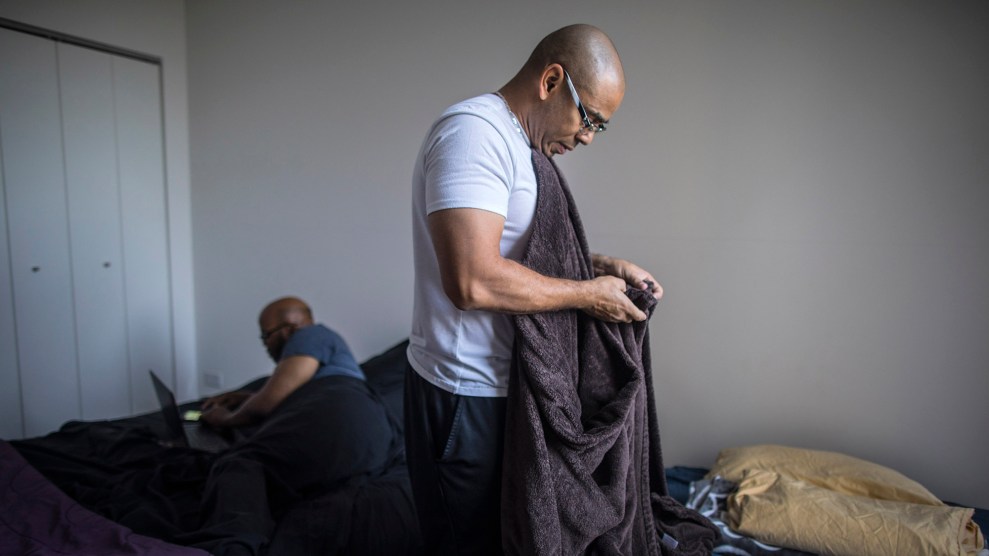
Henry Montgomery at the time of his arrest in 1963 /Baton Rouge Morning Advocate, courtesy of the Juvenile Justice Information Exchange
In 2016, Henry Montgomery won a landmark Supreme Court case that gave him and thousands of other inmates hope for a second chance. The 72-year-old was locked up in Louisiana at the age of 17 for killing a sheriff’s deputy, and he was sentenced to life in prison without the possibility of parole. The court ruled that because he was a kid at the time of his crime, the state should revisit his case and consider granting him a new sentence; it ordered other states to do the same for the roughly 2,800 juvenile lifers serving mandatory prisons terms all around the country.
Since then, more than 450 of them have been released. But not Montgomery. On Thursday he was denied parole for a second time, leaving the septuagenarian at the same prison where he has been incarcerated for 55 years.
In 1963, Montgomery, a black teenager, was playing hooky from school when he ran into Charles Hurt, a white sheriff’s deputy investigating a theft complaint. After the deputy tried to detain him, Montgomery pulled out a pistol and shot him. He was initially sent to death row, but a court later gave him a mandatory sentence of life without the possibility of parole because racial tensions had been so high during his trial. Decades later, in 2016, the Supreme Court said Louisiana should revisit his sentence again—in 2012, the court had ruled that mandatory life-without-parole terms like his were unconstitutional for teen offenders because their brains weren’t fully developed at the time of their crimes, and because they possessed so much potential for growth and change. “Prisoners like Montgomery must be given the opportunity to show their crime did not reflect irreparable corruption,” Justice Anthony Kennedy wrote for the majority. “If it did not, their hope for some years of life outside prison walls must be restored.”
In 2018, Montgomery went before the Louisiana parole board for the first time, but it said he had not participated in enough educational programs to justify his release. On Thursday, it rejected him again for the same reason. “It’s your responsibility to continue to work,” one of the parole board members reportedly told Montgomery during the hearing, which Montgomery watched via a video call from Louisiana’s Angola prison, with a warden stepping in at one point to adjust his hearing aid so he could follow the conversation. The criticism hit hard, because for his first three decades at Angola, Montgomery and other lifers were denied access to educational programs. After that, he tried to earn his GED, but he struggled with the coursework and was eventually deemed ineligible. Years earlier, when he was a young man, psychologists estimated during one of his trials that he had an IQ in the 70s.
Still, Montgomery worked to redeem himself in other ways. He went to church and signed up for Alcoholics Anonymous, even though he didn’t have a substance abuse problem, because it was one of the few self-help groups available to him. He started a prison boxing club and helped organize a literacy program so incarcerated people could write home to their families. After more programs opened up to him, he took anger management and victim awareness classes, and he found a stable job in the silk-screen shop, where he won employee of the month several times. “Henry did everything that was available to him,” says Kerry Myers of the Louisiana Parole Project, which has worked with Montgomery and other juvenile lifers to prepare their reentry plans. Montgomery also stayed out of trouble in prison, racking up disciplinary violations only 23 times over the course of 55 years, and just twice during the past 17 years—once for smoking in an unauthorized space, and again for not putting his clothes away properly.
Complicating his case is the fact that his victim’s family members do not want him paroled. Becky Wilson, who was nine years old when he killed her father, visited Montgomery in prison and forgave him, but she and her siblings have said they believe he should remain behind bars until he dies. “I want you to give him the same consideration he gave my father and my family,” she told the parole board last year, according to the Advocate. Her sister, Linda Hurt Wood, reiterated this sentiment Thursday: “Mr. Montgomery received a life sentence and so did we,” she said. “I will never have my father back.”
“I know I committed the crime,” Montgomery said during the hearing. “I am sorry all this happened…I’m just sorry.”
Montgomery’s Supreme Court case was a watershed moment for the country’s 2,800 juvenile lifers. At the time, roughly 70 percent of them were people of color, and many had been locked up during the “superpredator” scare of the 1990s. The justices argued that life-without-parole sentences should be reserved only for the “rarest of juvenile offenders,” people who could never be rehabilitated. Because of this, more than 1,850 juvenile lifers nationally have had their sentenced shortened, either by lower courts or state legislatures. Twenty-one states and the District of Columbia have banned life without parole for kids in all circumstances, and another six states have nobody serving this sentence.
But not all states have been so forgiving. Of the juvenile lifers in 2016, only 1 in 6 have been freed, according to the Campaign for the Fair Sentencing of Youth, an advocacy group. In some places, prosecutors have argued they should remain in prison for good, or that they should wait longer before their release.
And depending on the state, parole hearings can seem stacked against them: Maryland, Missouri, New York, Iowa, Michigan, and Florida are facing lawsuits because parole boards have made it so hard for juvenile lifers to get out. “Some [boards] are still rubber-stamping denials because of the nature of the crime,” says Jody Kent Lavy of the Campaign for the Fair Sentencing of Youth, who notes that most lifers were convicted of homicide. “It’s clearly problematic if parole boards are only looking at the crimes and not taking into account the rehabilitation these people have demonstrated.
“Mr. Montgomery’s freedom is long overdue,” she added. “The fact that he has served well over five decades in prison for a crime he committed as a teenager, despite evidence he was rehabilitated long ago, is nothing short of inhumane.”
Louisiana had one of the country’s biggest juvenile lifer populations at the time of the 2016 Supreme Court ruling—roughly 300 lifers in all. Since then, prosecutors in the state have argued that about a third of them are the rare type of offender who deserves to be locked up for good and never receive the possibility of parole. The rest had their sentences changed by a 2017 state law and can go in front of a parole board after serving 25 years in prison, assuming they meet certain criteria like a low disciplinary record and enough experience with rehabilitative programs. Roughly a dozen of them have been denied parole, estimates Myers of the Louisiana Parole Project. A few dozen have been released.
Montgomery, meanwhile, approaches his 73rd birthday at Angola. His lawyers have pledged to continue fighting for his freedom. “If he dies in prison, which he doesn’t want to, then he knows that at least his case will have changed things for others, it will have created opportunities for other people,” says Myers. “He gets some comfort in that.”
















